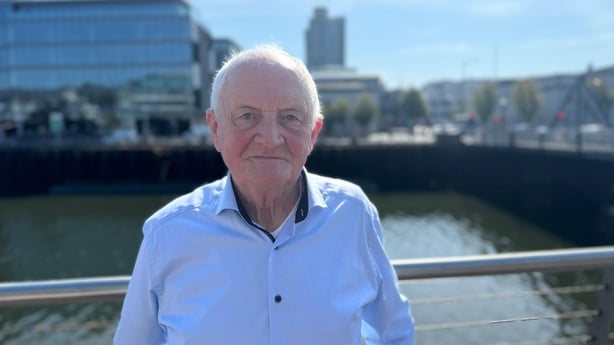More than 6,000 former employees of CIÉ are calling on the company to increase their pensions, after over a decade and a half of a freeze in their payments.
Just over 2,000 of them have also asked Minister for Finance Jack Chambers to use the Budget to address an anomaly which prevents them from accessing the State pension or the medical benefits that come with it.
Before the economic crash in 2008, CIÉ matched pay increases granted to staff with pro-rata pension increases to its retired employees in two pension schemes operated by the company: the so-called 'wages' scheme, which covers drivers and mechanical grades; and the 1951 superannuation scheme, for clerical, supervisory and executive staff.
However when the economic crash hit, CIÉ halted both pay and pension increases.
Pay increases for staff were restored in 2016, but pensioners have had no increase in 16 years.
Former employees say vulnerable older pensioners are being stonewalled by CIÉ, that almost 1,000 of these pensioners receive payments lower than the living wage and that many pensioners are suffering hardship.
"This is an issue about people and their quality of life," said CIÉ Salaried Pensioners' Association Assistant Secretary Noreen Coughlan.
"These are people who served the company well. They served the country well. They are struggling. They paid into a pension fund and how can you justify not giving them an increase."

CIÉ pensioners say an independent actuarial analysis of the 1951 superannuation scheme conducted last year concluded that it could support moderate increases of around 2.5%, without affecting sustainability.
This is disputed by CIÉ.
The company told RTÉ News in a statement that it received advice from the pension scheme actuary, AON, earlier this year which concluded that it could not sustain increases.
CIÉ also said it commissioned consultants Mercer to conduct a review.
"Their [Mercer] report concluded that it was 'difficult to see how the CIÉ Board, acting prudently, could consent to the award of discretionary pension increases'," the company said.
It pointed out that, at the end of last year, the balance sheet deficit for the two defined benefit pension schemes operated by CIÉ was €371 million.
"The CIÉ Board is acutely aware of this and the plight of pensioners but are mandated to act in a responsible manner in relation to the financial stability of the schemes and the group," the company said.
CIÉ said it is extremely mindful of the frustration of pensioners across both its pension schemes, "however, pension increases can only be contemplated if those increases can be sustainably funded by the schemes," the company said.
Ms Coughlan is adamant there is sufficient headroom in the pension funds to allow for "modest" increases for CIÉ pensioners. She said if CIÉ does not act, then the Government must.
"CIÉ is funded by the Exchequer, so how does the Government stand by and see this cohort - a small cohort, I know - not getting a pension increase? How do you justify that? It's unfair; it's unjust. We're only looking for fair treatment," Ms Coughlan said.
Christy Murphy, 82, is a CIÉ pensioner from Tralee in Co Kerry. He worked with CIÉ for more than 45 years, before retiring in 2006.
The Kerry native is among more than 2,000 CIÉ pensioners who are in an even worse position.
Not only have they not had a pension increase since 2008, they also paid PRSI at the lower Class D rate, rather than Class A.
As a result, they've been refused the State pension and the many benefits that flow from it.

A change was made in 1995 which meant those recruited after that time paid Class A PRSI and qualified for the State pension, but the position of those recruited pre-1995 was not changed.
"The Class D PRSI contribution doesn't entitle you to anything in relation to a contributory State pension - that's the big issue for me at this stage," Christy Murphy told RTÉ News.
"It's a matter of embarrassment to be honest with you, at 82, and having served 45 years in the public sector, to be looking for some extra money in my weekly or monthly wages, as it were. It's not that I want to accumulate a whole lot or anything, but you would like to be reasonably comfortable after serving as long as I served."
Mr Murphy and other CIÉ pensioners recently met Mr Chambers and appealed to him to address the Class D anomaly in the Budget.
Mr Chambers has undertaken to raise the issue with Cabinet colleagues.
We need your consent to load this rte-player contentWe use rte-player to manage extra content that can set cookies on your device and collect data about your activity. Please review their details and accept them to load the content.Manage Preferences







